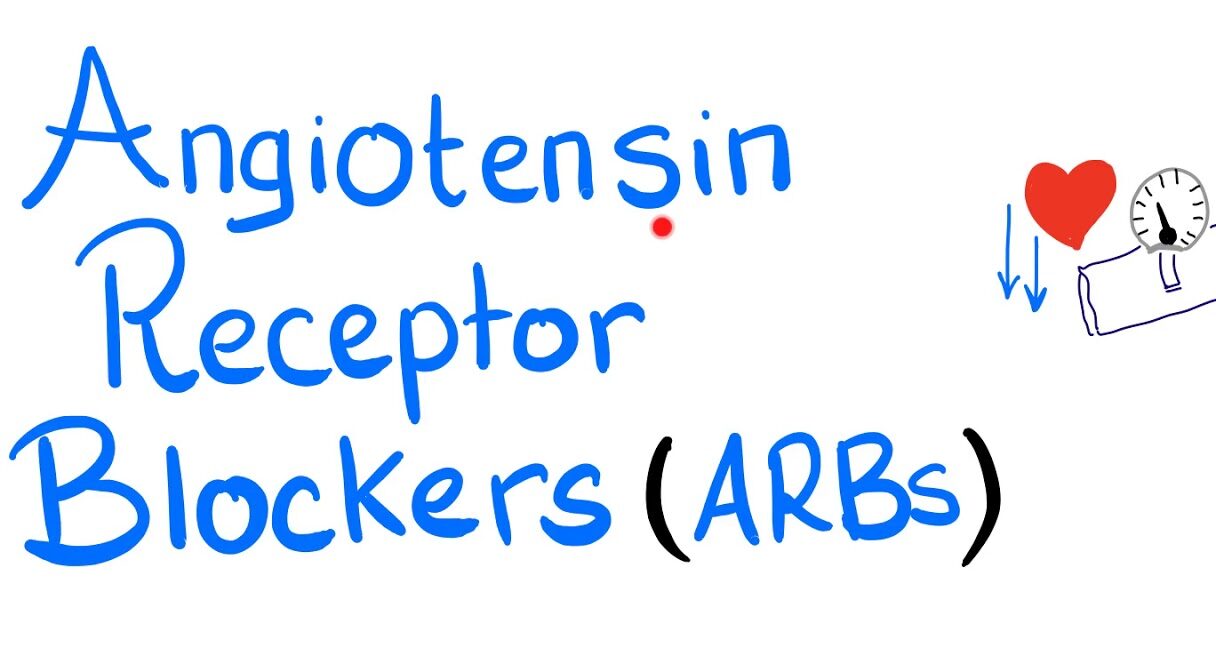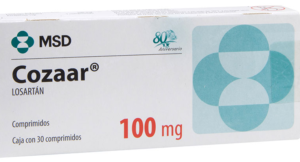
Angiotensin Receptor Blockers (ARBs)
Angiotensin Receptor Blockers (ARBs) are a class of drugs that help treat conditions like hypertension, heart failure, chronic kidney disease, and stroke prevention. They work by blocking the action of angiotensin II, a hormone that can constrict blood vessels, raising blood pressure.
Mechanism of Action
ARBs target and block the Angiotensin II Type 1 (AT1) receptor. Angiotensin II normally binds to this receptor, causing blood vessel constriction and increased blood pressure. By blocking this receptor, ARBs promote vasodilation, reducing blood pressure and the strain on the heart.
Common Uses of angiotensin receptor blockers (ARBs)
- Hypertension (High Blood Pressure)
ARBs help lower blood pressure by relaxing blood vessels.
- Heart Failure
They reduce the workload on the heart.
- Chronic Kidney Disease
They protect the kidneys by lowering blood pressure.
- Stroke Prevention
ARBs reduce the risk of stroke, particularly in patients with high blood pressure.
- Diabetic Retinopathy
ARBs may reduce eye damage in diabetic patients.
Table: Common ARBs and Their Specifications
| Drug Name | Popular Brand(s) | Indications | Dosage Form | Starting Dose | Maximum Dose |
| Losartan | Cozaar | Hypertension, Heart Failure, Chronic Kidney Disease | Tablet | 50 mg daily | 100 mg daily |
| Valsartan | Diovan | Hypertension, Heart Failure, Post-Myocardial Infarction | Tablet | 80 mg daily | 320 mg daily |
| Irbesartan | Avapro | Hypertension, Diabetic Nephropathy | Tablet | 150 mg daily | 300 mg daily |
| Olmesartan | Benicar | Hypertension | Tablet | 20 mg daily | 40 mg daily |
| Candesartan | Atacand | Hypertension, Heart Failure | Tablet | 8 mg daily | 32 mg daily |
| Telmisartan | Micardis | Hypertension, Cardiovascular Risk Reduction | Tablet | 40 mg daily | 80 mg daily |
Side Effects of Angiotensin Receptor Blockers
ARBs are generally well-tolerated, but they can cause side effects in some individuals. These include:
- Dizziness or lightheadedness
- Elevated potassium levels (hyperkalemia)
- Fatigue
- Angioedema (swelling of deeper layers of skin)
- Low blood pressure (hypotension)
Drug-Drug Interactions
ARBs may interact with the following drugs:
- Other blood pressure medications
The effect may be enhanced, leading to hypotension.
- Potassium supplements
Can lead to hyperkalemia.
- NSAIDs (Non-Steroidal Anti-Inflammatory Drugs)
Reduce the blood pressure-lowering effect of ARBs and may worsen kidney function.
- Lithium:
ARBs can increase lithium levels, leading to toxicity.
- Rifampin
May decrease the effectiveness of ARBs.
Importance of Angiotensin receptor blockers
Angiotensin receptor blockers are crucial in managing conditions that involve high blood pressure, heart failure, and kidney protection. They offer an alternative for patients who cannot tolerate ACE inhibitors due to side effects such as cough.
Doctor’s Instructions Before Taking ARBs
- Health Conditions
Inform your doctor if you have kidney disease, heart disease, or a history of angioedema.
- Pregnancy and Breastfeeding
ARBs should be avoided during pregnancy, especially in the second and third trimesters. Consult a doctor before breastfeeding.
- Blood Tests
Regular blood tests may be necessary to monitor kidney function and potassium levels.
- Adjustments for Dosage
Dosage may need adjustment in elderly patients or those with liver impairment.
- Hydration
Ensure adequate hydration, especially if taking ARBs in combination with diuretics.
Conclusion
Angiotensin receptor blockers ARBs are vital medications for managing hypertension and other cardiovascular conditions. While generally safe, it is important for patients to be monitored for side effects and drug interactions. Always follow your doctor’s guidance and inform them about any underlying conditions or other medications you are taking.
